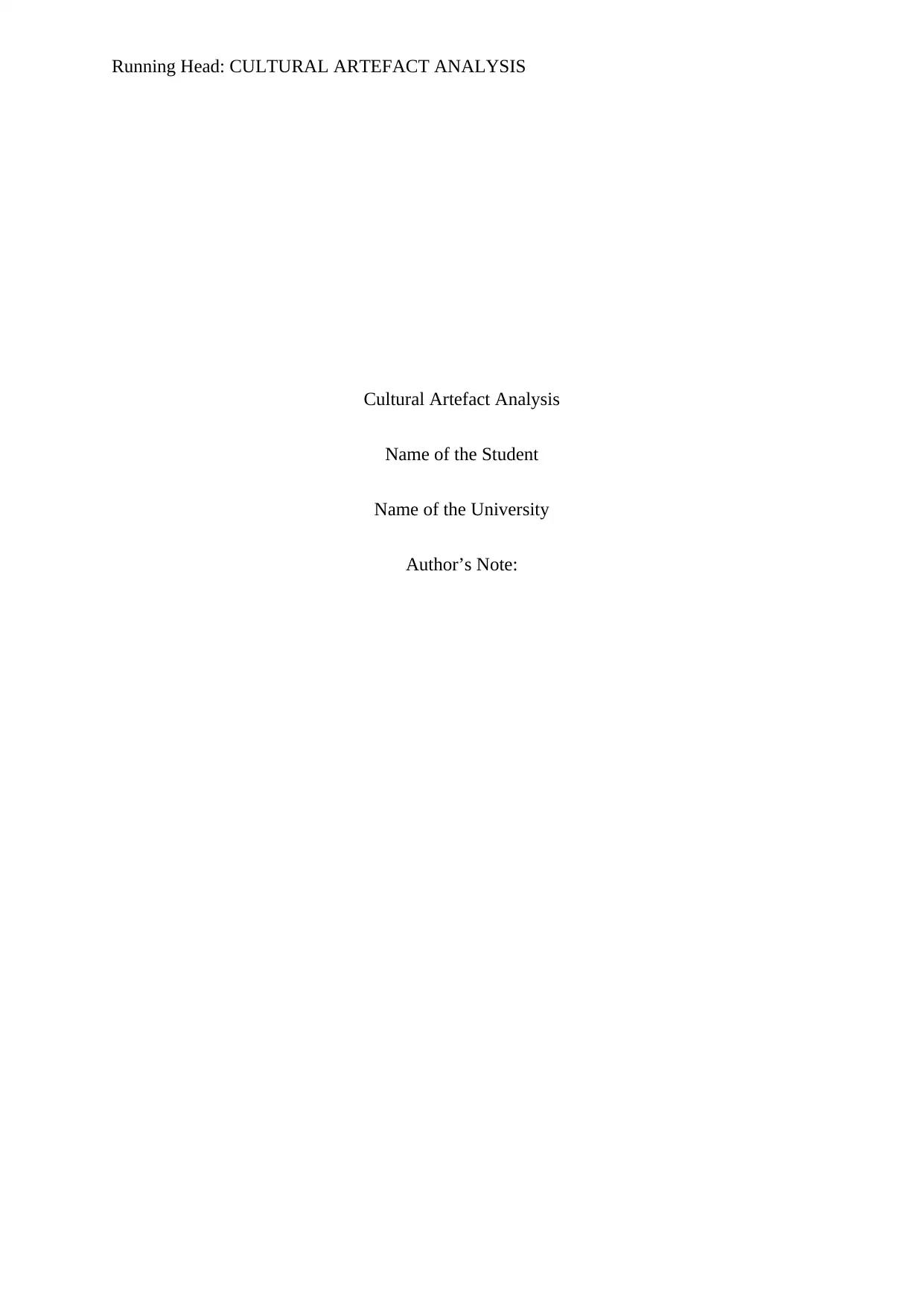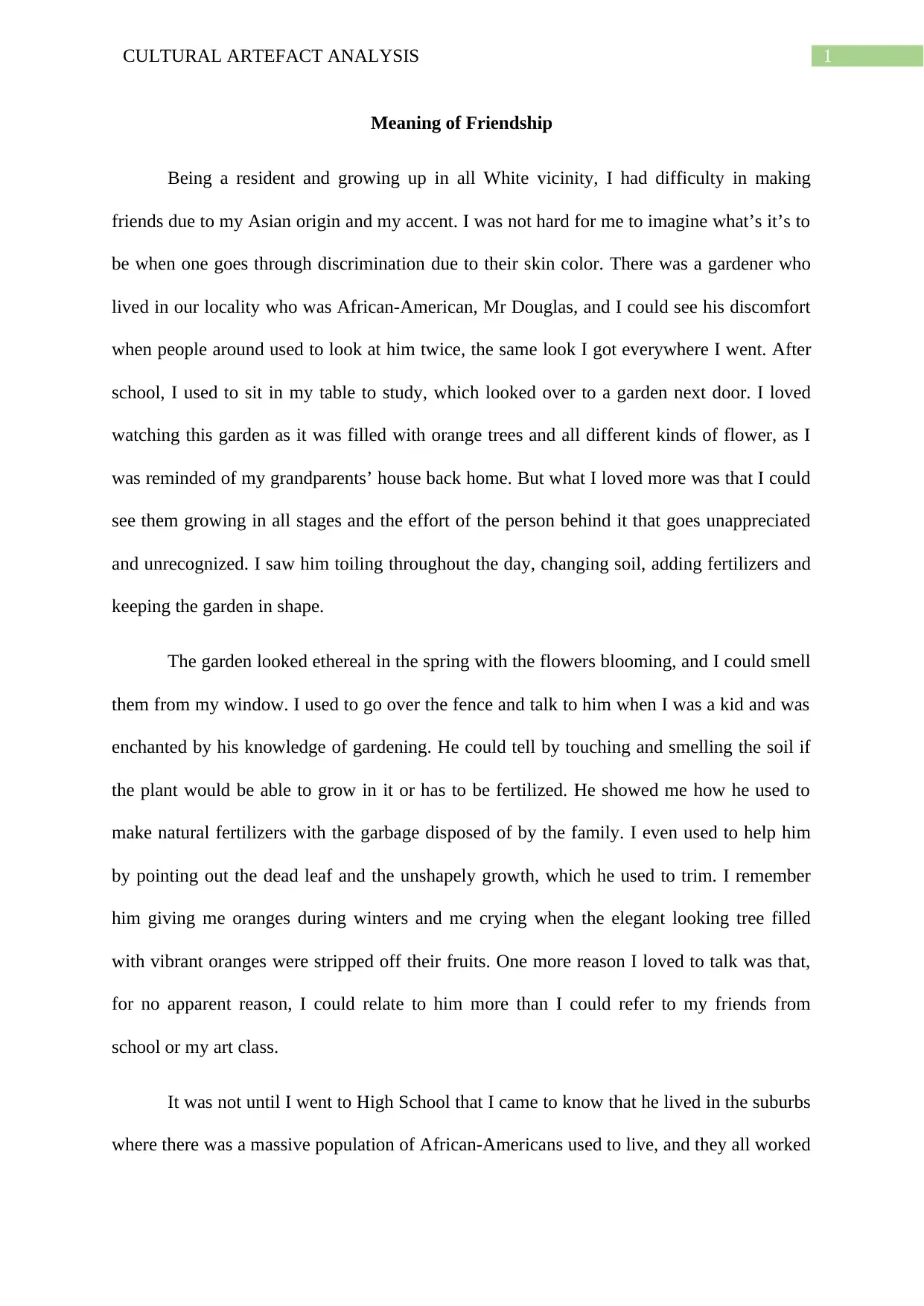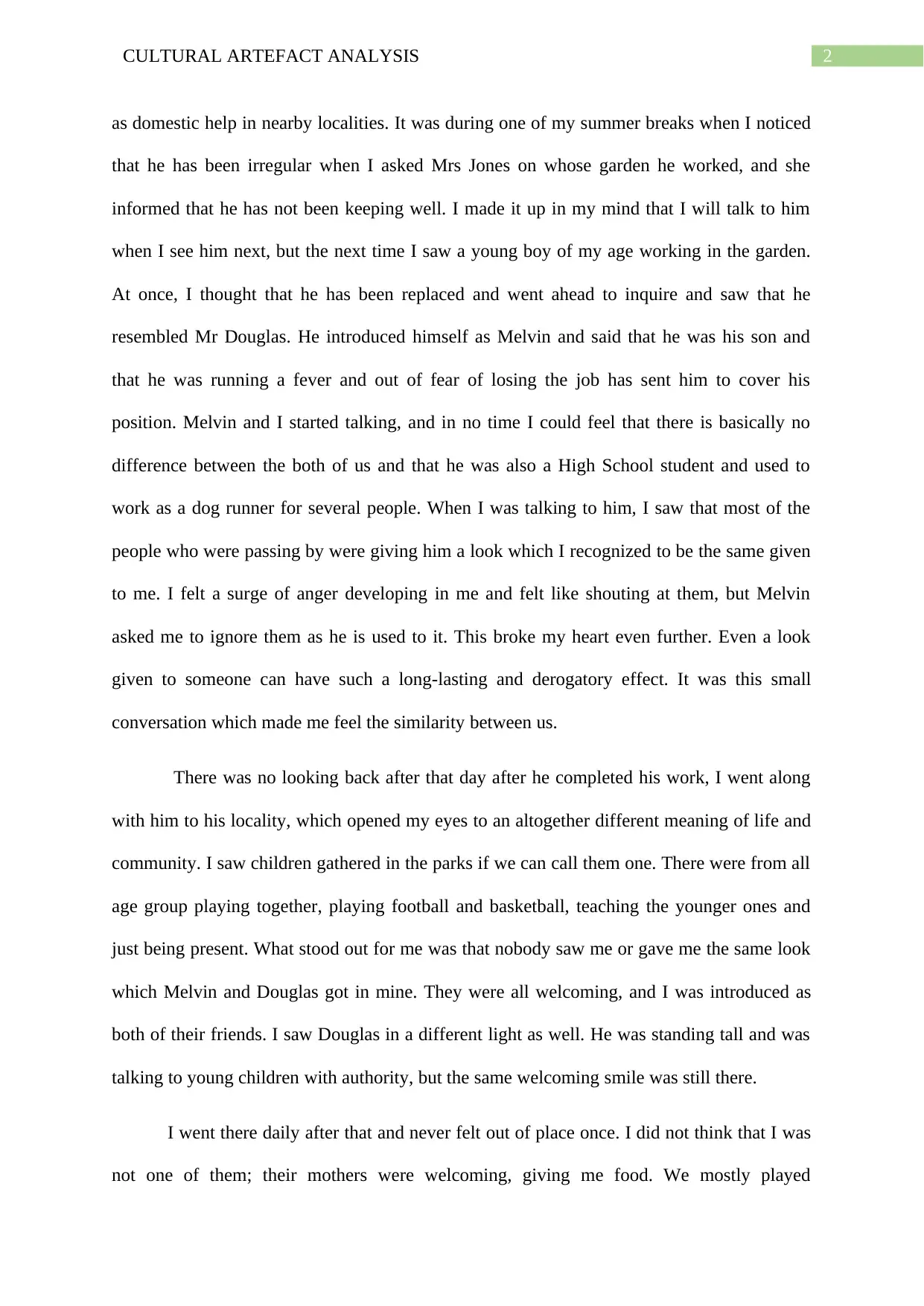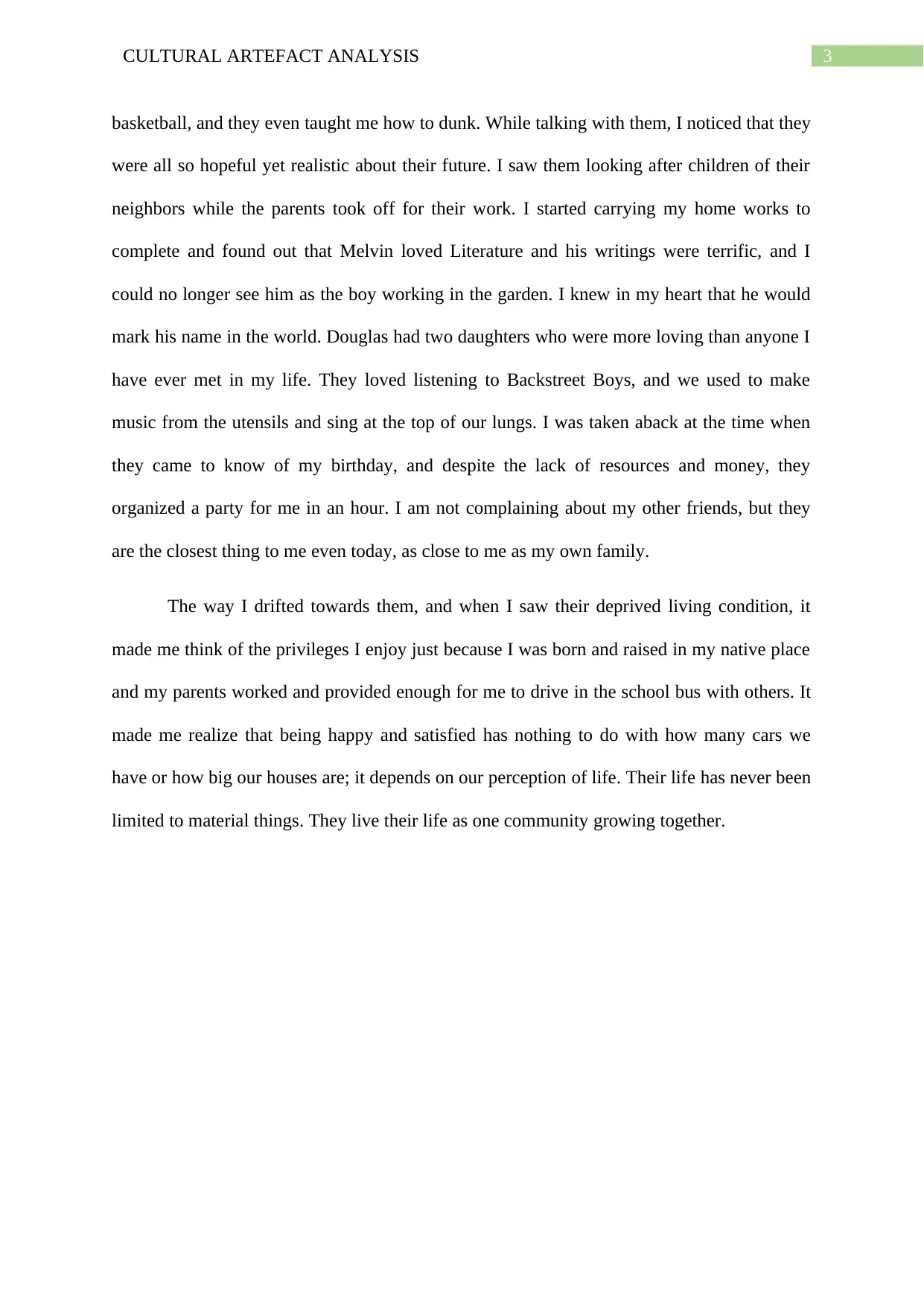Cultural Artefact Analysis: Exploring Friendship and Cultural Identity
VerifiedAdded on 2022/08/12
|4
|1220
|26
Report
AI Summary
This report provides a detailed analysis of a cultural artefact, focusing on the author's personal experiences and the development of friendships within a racially and socio-economically diverse community. The author reflects on their childhood encounters with an African-American gardener, highlighting themes of discrimination, empathy, and the formation of meaningful connections. The narrative explores the impact of societal biases and the importance of understanding different perspectives. The report delves into the author's experiences in high school, their interactions with the gardener's son, and the discovery of a supportive community. It also touches upon the challenges faced by marginalized groups and the significance of community bonds in overcoming adversity. The report emphasizes the author's personal growth and the realization that happiness is not solely dependent on material possessions. Finally, the report emphasizes the importance of empathy, understanding, and the value of diverse friendships in shaping one's perspective on life.
1 out of 4











![[object Object]](/_next/static/media/star-bottom.7253800d.svg)